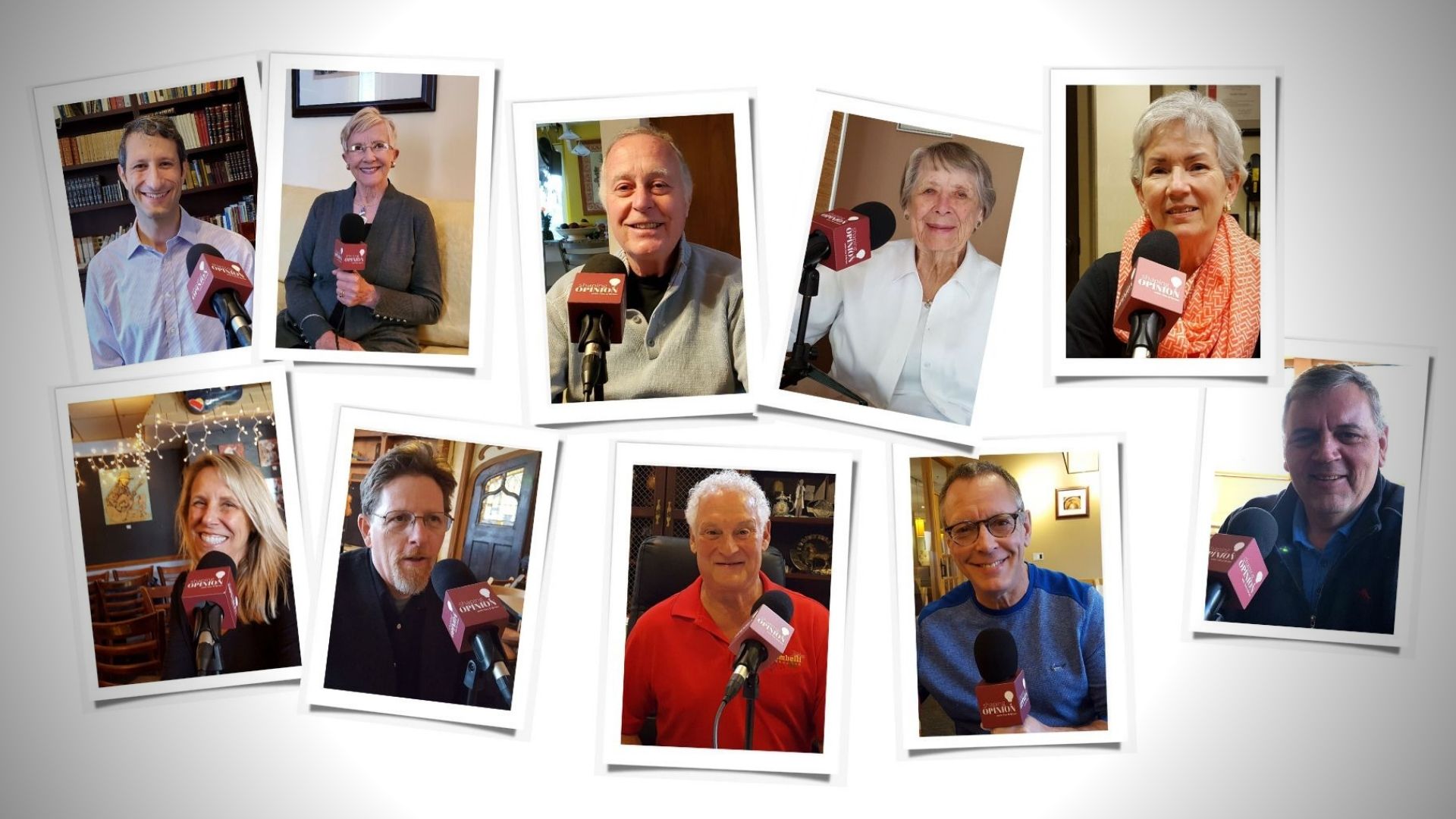
“The world as we have created it is a process of our thinking. It cannot be changed without changing our thinking.”
-Albert Einstein
Sometimes that’s a problem. We realize that our thoughts determine the success of what we do. This leads to nagging thoughts that preoccupy us so much that when we are at work, we are caught up in what needs to be done at home. When we are at home, work is on our mind.
Having been in the field of the analysis and the effort to shape public opinion for more than 30 years, the question of what shapes our opinions has never left my mind, and so it was with that question in mind I set out to create a podcast that would seek answers in the stories and perspectives of people with passion. Not coincidentally, the podcast is called Shaping Opinion.
After more than 100 episodes with guests that included a Nobel Prize laureate, who talked about directed evolution, and the woman who led public relations at Nike when they launched “Just Do It.,” that question has served as the foundation for every interview. Sometimes the question itself has been at the center of our discussion, but more often the guests’ stories themselves answer the question without it ever having to be asked.
So, what have we learned?
We learned that what child psychologists tell us about our formative years is particularly true when it comes to the opinions we hold as adults.
Some of my guests were typical children and young adults, others not so much. But it appears to me that the systems and institutions that guided them in childhood and then into adulthood influenced their worldviews immensely. Those worldviews seemed to drive them strongly in the directions that would give their lives a sense of purpose.
Ralph Cindrich, an NFL super agent, told me about his rough and tumble youth in a steel town where football was one way to avoid working in the mill. Perhaps that shaped the way he “brawled” with NFL owners over million-dollar contracts to get what he felt his clients deserved. Ultimately, his work with pro football players and the league helped shape the way we see the business of professional sports today.
Frances Arnold is that Nobel Prize laureate from CalTech. She was a rebellious teenager, who by 17 had hitchhiked to an anti-war protest in Washington D.C., and she had moved out of her parents’ house and drove a taxi to support herself before attending college.
Maybe it’s that kind of strong-minded rejection of convention, along with her immense intellect, that it takes to defy expectations and come up with an out-of-the-box way to manipulate proteins and become the first to discover a way to direct the evolutionary process.
Now retired Navy Captain Bill Toti told us his personal story of what he did, thought and felt on September 11, 2001, when he began that day in his office at the Pentagon. He described in vivid detail what it was like to be in the Pentagon when that American Airlines jet hit the building. His sense of duty called on him to rescue some who survived the attacks, and try to help others who did not. His personal 9/11 story is emblematic of so many we’ve heard that shaped the world’s opinion of just how America responds in times of crisis.
What are the patterns?
After interviewing these 100-plus notables, I’ve come to some conclusions about the things shape our opinions.
Life experience is number one. If someone has had a personal experience with something, and you’re trying to convince them to change their opinion, you’re up against the biggest challenge of all. Someone’s life experience is usually ingrained in their worldview. The more traumatic the experience, the stronger their convictions.
Second, I learned that the things we are most passionate about define our values as expressed in our attitudes. Let’s say you love country music more than anything and you want to be a successful songwriter. You will do just about anything you need to do to attain your goal, even if it means changing some deeply held opinions.
Or, let’s say you’ve experienced a personal loss in the way Mary Latham did. She lost her mother to cancer, and fueled by grief and a desire to honor her mother’s philosophy of life, she went on a 50-state trek to collect stories of kindness, and then share those stories. Mary didn’t seek her mission out. Her mission found her and in the process, she found herself serving as a vessel to remind countless thousands of the power of simple kindness. She told me how she came to expect to see seasoned reporters and others tear up when they listened to her stories.
If there is one common thread it is that words do not shape opinion. It’s the behaviors, the actions, the sacrifices that give the words their meanings. Stories give those words their glue. Stories that we may see unfold. Some stories of which we are a part.
In the end, it’s the hearing of the stories, the living of those stories, the experience of it all, and then the therapeutic act of sharing of those stories that shape opinions.

